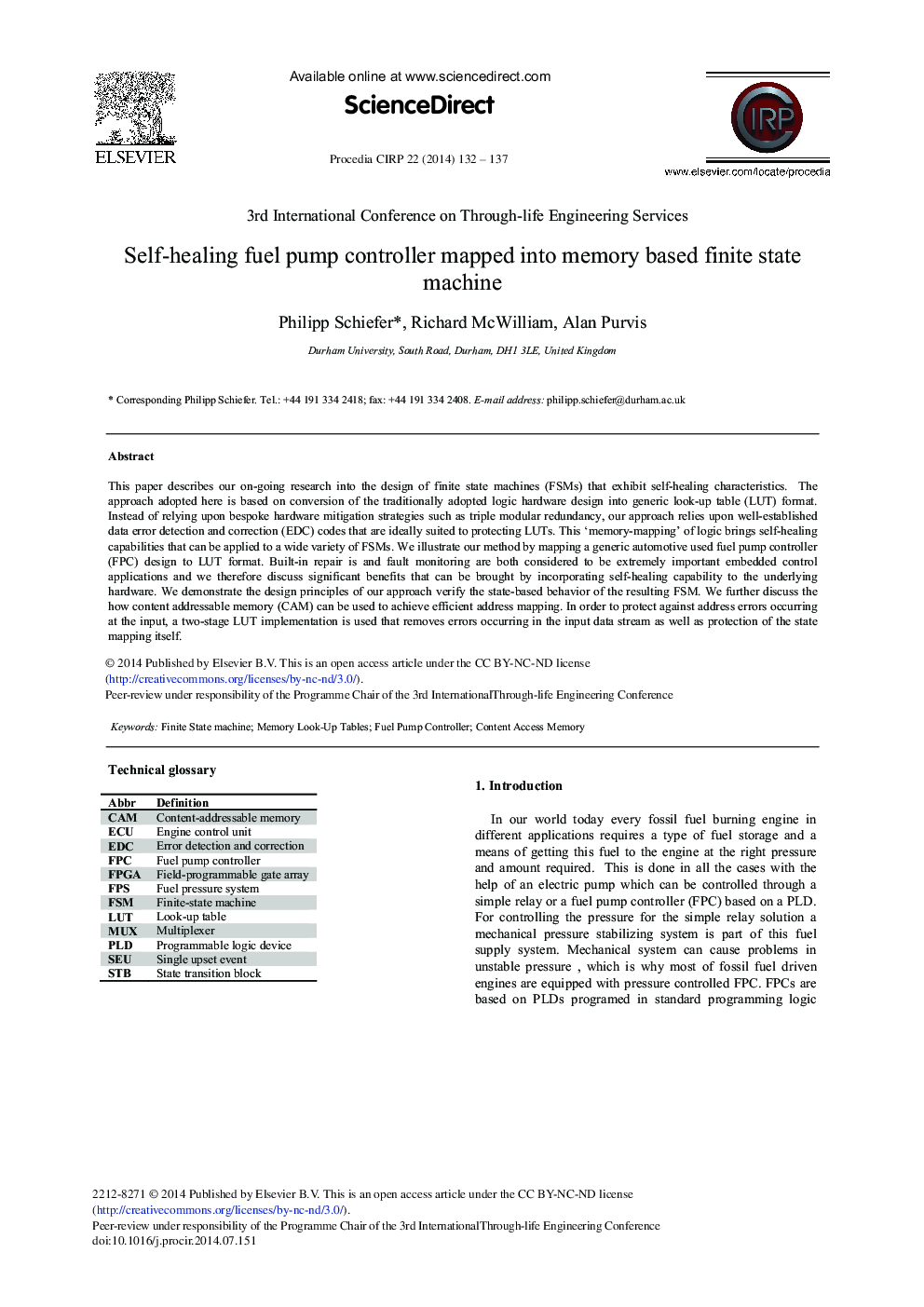| Article ID | Journal | Published Year | Pages | File Type |
|---|---|---|---|---|
| 1699857 | Procedia CIRP | 2014 | 6 Pages |
Abstract
This paper describes our on-going research into the design of finite state machines (FSMs) that exhibit self-healing characteristics. The approach adopted here is based on conversion of the traditionally adopted logic hardware design into generic look-up table (LUT) format. Instead of relying upon bespoke hardware mitigation strategies such as triple modular redundancy, our approach relies upon well-established data error detection and correction (EDC) codes that are ideally suited to protecting LUTs. This 'memory-mapping' of logic brings self-healing capabilities that can be applied to a wide variety of FSMs. We illustrate our method by mapping a generic automotive used fuel pump controller (FPC) design to LUT format. Built-in repair is and fault monitoring are both considered to be extremely important embedded control applications and we therefore discuss significant benefits that can be brought by incorporating self-healing capability to the underlying hardware. We demonstrate the design principles of our approach verify the state-based behavior of the resulting FSM. We further discuss the how content addressable memory (CAM) can be used to achieve efficient address mapping. In order to protect against address errors occurring at the input, a two-stage LUT implementation is used that removes errors occurring in the input data stream as well as protection of the state mapping itself.
Keywords
Related Topics
Physical Sciences and Engineering
Engineering
Industrial and Manufacturing Engineering
Authors
Philipp Schiefer, Richard McWilliam, Alan Purvis,
